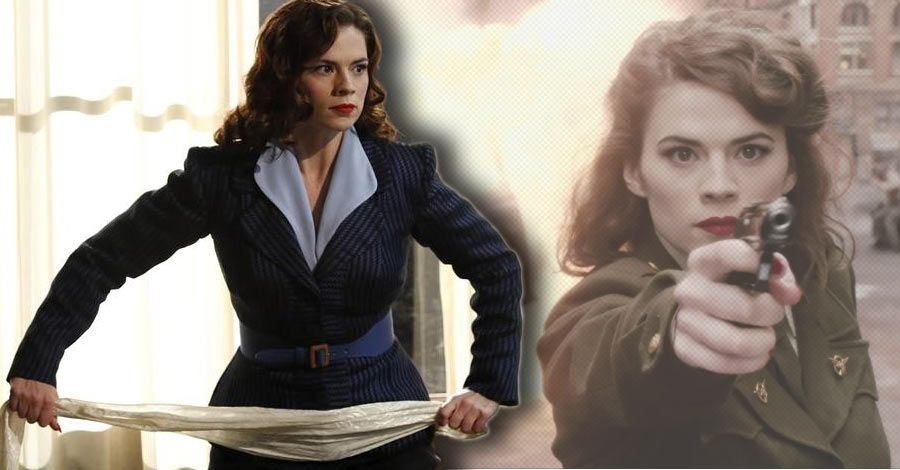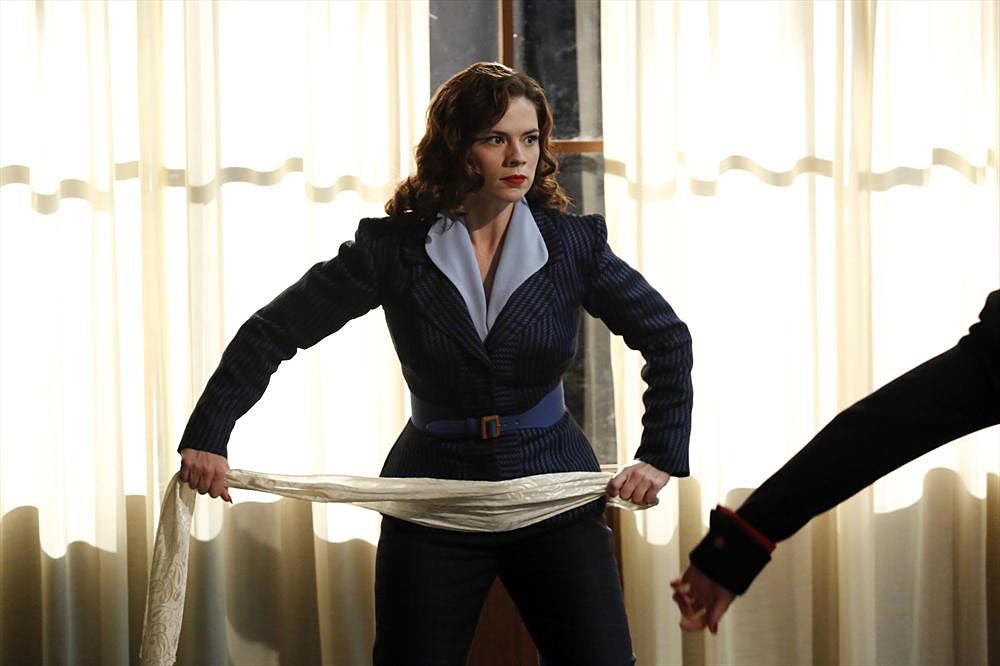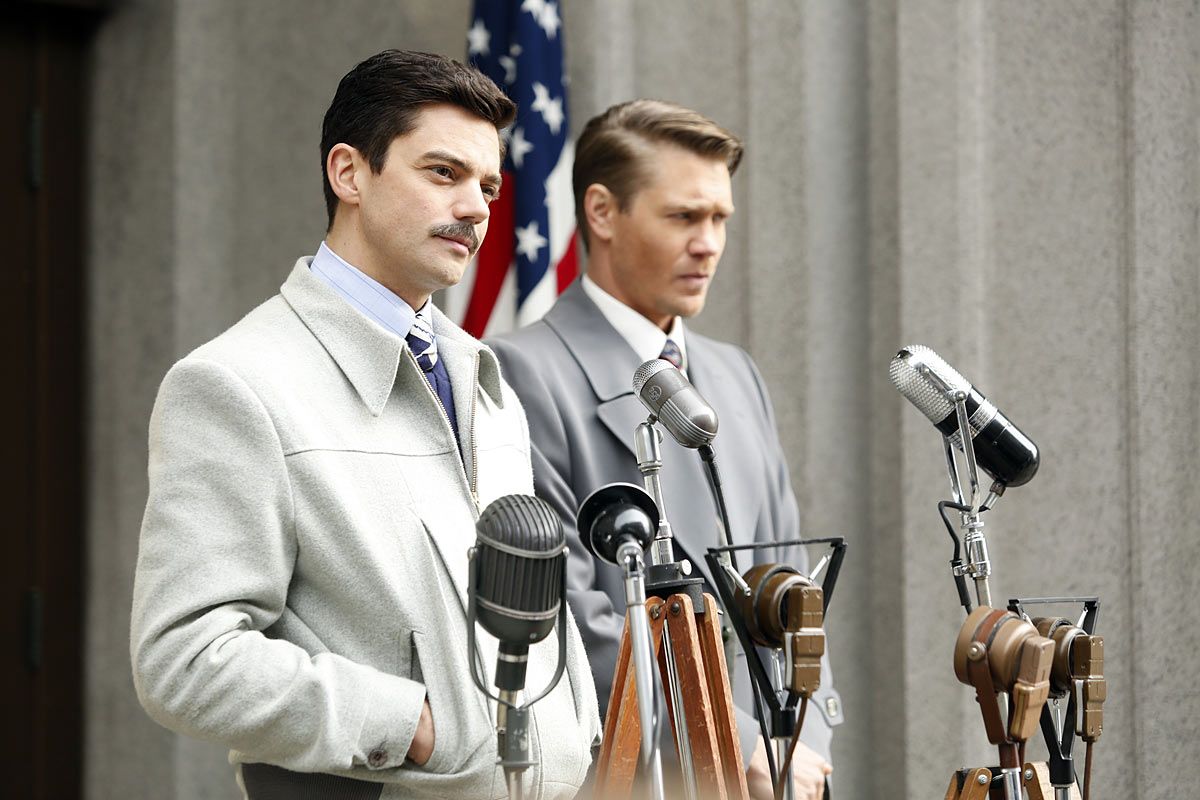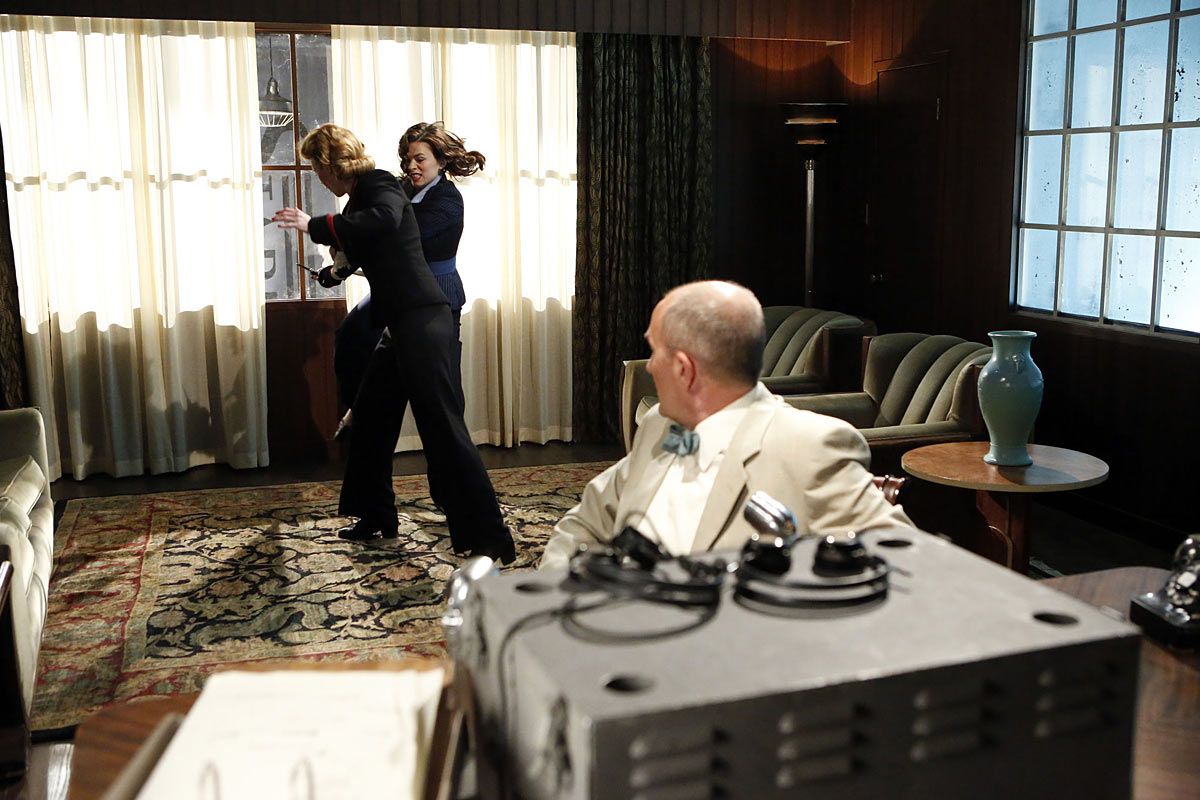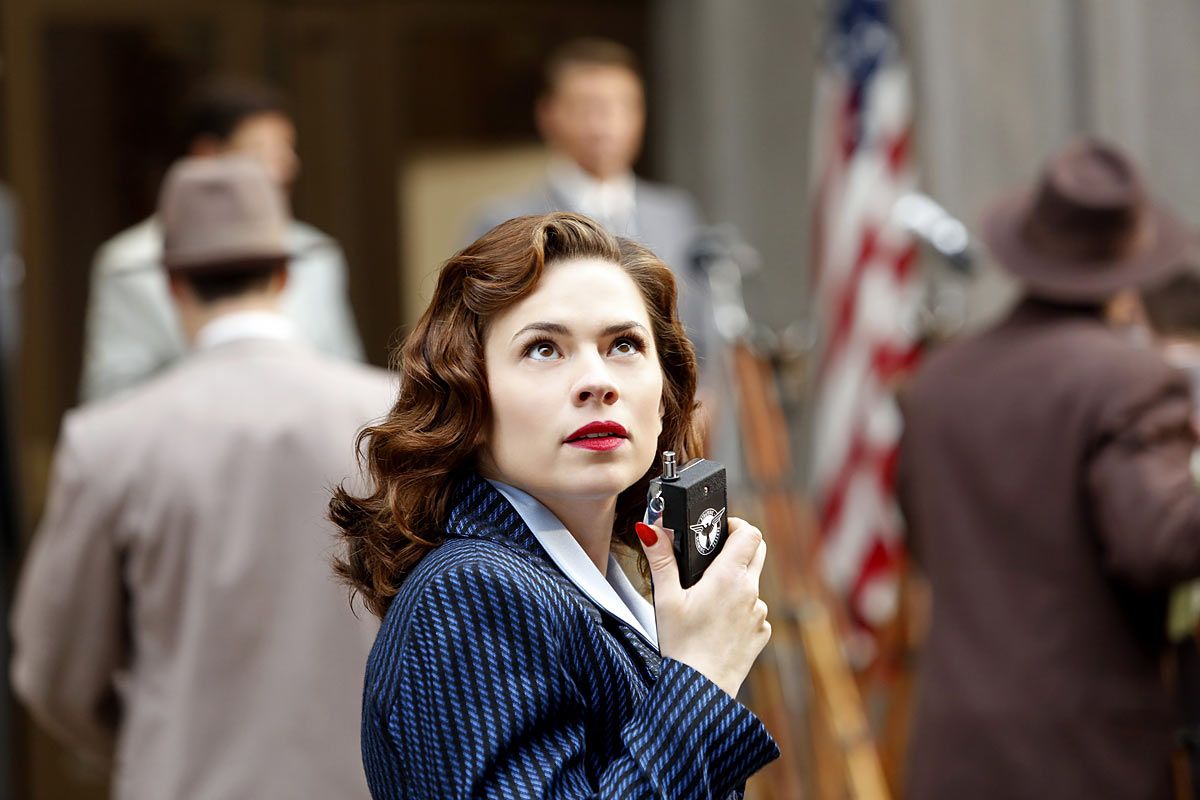[SPOILER WARNING: The following article contains major spoilers for the Season 1 finale of "Marvel's Agent Carter."]
The first season of "Agent Carter" has come to a close, and the action-packed finale saw the return of Howard Stark (Dominic Cooper) as he assisted Agents Peggy Carter (Hayley Atwell), Jack Thompson (Chad Michael Murray), and Daniel Sousa (Enver Gjokaj) in trapping Dr. Ivchenko/Fennhoff (Ralph Brown) and Dottie Underwood (Bridget Regan).
RELATED: "Agent Carter Executive Producers Tease Season Finale, Howard Stark's Return
Viewers were treated to Carter and Underwood, the prototypical Black Widow, engage in hand to hand combat, Stark undergo hypnosis at the hands of Ivchenko and nearly kill thousands, and Edwin Jarvis (James D'Arcy) show off his piloting skills. Steve Rogers played a big part in "Valediction" without actually showing up, and there was a further tie to the Marvel Cinematic Universe with an appearance from Dr. Arnim Zola (Toby Jones). In other words, a lot happened.
Executive producers and showrunners Michele Fazekas and Tara Butters spoke with CBR News about some of the biggest scenes in "Valediction," discussing how they made the fight between Carter and Underwood realistic, the effect of the finale's events on Stark, and bringing Captain America into the picture.
CBR News: The fight between Peggy and Dottie was intense. Peggy obviously hasn't been trained in the same way as Dottie, so how did you approach that imbalance to make sure that Peggy could come out on top?
Tara Butters: Well, she uses the same skills that she's used with even the men in her life in that at some point Dottie underestimates her. She's not keeping her guard up with Peggy all the time because she has the ability to find weakness and use it against you. One of the things when we spoke to the stunt coordinator was we wanted them to both have two very different styles in that Dottie has been born and bred basically; she's a killer.
Michele Fazekas: But she has a dance background, too. There's a choreography to how she fights whereas Peggy's like a street fighter. Peggy uses whatever she can get to. So in that fight, she picks up a scarf and it's like, "She's got a knife in her hand what are you doing with a scarf?" But Peggy's actually able to use it really effectively.
She's very resourceful.
Fazekas: I like to contrast that fight with the fight in episode six ["A Sin to Err"] which I loved. It's the Automat fight which is a cool fight and she just mops the floor with those guys. She never gets hit -- [producer] Louis D'Esposito actually pointed that out. And I think it's true to that episode because that was the point. Those guys didn't believe that she could win a fight, and guess what, she kicked their ass all over town. So in this fight, I think it was important to see that she's going to get hit, she's going to get hurt. It's a very different type of fight. It's pretty brutal.
Bridget Regan Relishes Her Killer Instinct as "Agent Carter's" Deadly Opposite
And in a different kind of brutal, we see Peggy on the radio with Howard in a scene very reminiscent of the end of "Captain America: The First Avenger." Why make the rescue of Steve Rogers a distraction for Howard rather than Peggy?
Butters: It gave Peggy somebody to save. It put her in the role of hero -- there's somebody that she cares about that she wants to save from doing something horrible. And it fit in with conversations we had with the other writers about expanding Howard's character and seeing that there's more to him.
Fazekas: When we were breaking this episode, we knew that it was going to be Howard in the plane and Peggy talking to him. But we didn't know what Fennhoff convinced him to do and what's going to turn Howard and convince him not to do what he thinks he's doing. It was very late in the game where somebody said, "Oh, what if Fennhoff is convincing Howard that he's going to find Steve?" I think one of the last things you see in "The First Avenger" is Howard up in the plane looking for the Valkyrie. You know even back then that it was something that weighed on him, and that's what I like about Howard in this episode. You see these other parts of him where he has this guilt and real vulnerability about inventing Midnight Oil and about Steve Rogers -- even at the same time that you see him stealing the Blitzkrieg button like a jerk.
Both of those aspects are authentic within his character. And Dominic Cooper has such a lovely range in this episode where he was funny and sarcastic and left me in tears when Fennhoff is basically saying, "You're a bad person. And this is all because of you." And part of Howard's problem is he believes Fennhoff is right. Part of him thinks he's right.
We do see him feel guilty, but what are your thoughts on the effect this will have on Howard? Because we know he goes on to continue to make weapons.
Butters: I think that Howard is Howard and he can have these emotional moments, and by the end of the episode you're sure that he's still planning to destroy all his bad babies and make sure that certain things aren't in the government's reach. He's still who he is. He still can't help if he has an idea in his head, he wants to make it and he wants to see if it can be done.
Stay tuned to CBR News for more on the future of "Agent Carter" and other Marvel Television projects.

